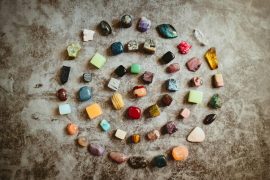When it comes to choosing a wedding ring, there are a plethora of options available in the market. For those who have decided on gold jewelry, the karat purity is an important factor to consider. The higher the karat, the higher the price tag, which is why it’s crucial to understand the different karat options available.
In this article, readers will learn about the various karat options for gold wedding rings and the factors to consider when making a decision. By the end of this article, readers will have a better understanding of which karat purity is best suited for their needs and budget.
Key Takeaways
- Understanding the different karat options for gold wedding rings is crucial when making a decision.
- The higher the karat, the higher the price tag of the wedding band.
- By taking the time to read up on the different karat options and factors to consider, readers can make an informed decision about which karat purity is best suited for their needs and budget.
Karat Purity
Karat purity is a measure of the amount of pure gold in a piece of jewelry. The higher the karat, the more gold the piece contains. However, pure gold is too soft for use in jewelry, so it is alloyed with other metals to make it more durable. The most common alloys used for jewelry are copper and zinc.
The most popular karat levels for gold jewelry are 10K, 14K, and 18K. These levels are achieved by mixing pure gold with the appropriate amount of alloy metals. Higher karat gold, such as 22K or 24K, is less durable and more easily scratched than lower karat gold, making it less practical for everyday wear.
In summary, karat purity is an important factor to consider when purchasing gold jewelry. The higher the karat, the more gold the piece contains, but also the less durable it may be.
Is 10K Gold Good for Wedding Rings? Why?
When it comes to wedding rings, choosing the right metal is crucial. One of the most common options is 10K gold, which is made of 10 parts pure gold and 14 parts other metals like silver and copper. Although 10K gold is the lowest grade of gold used in jewelry, it is still a popular choice for wedding bands in the US due to its affordability and durability.
Despite containing a lower amount of pure gold compared to other gold alloys, 10K gold is still a good option for wedding rings. In fact, it is considered one of the smarter choices for those who want a durable ring without breaking the bank. The metal alloys in 10K gold make it more resistant to scratches and wear, making it ideal for everyday wear.
However, one potential issue with 10K gold wedding bands is the risk of metal allergies. The metal alloys used in the ring, such as nickel, can cause itching and other skin irritations in some people. It is important to consider any known metal allergies before choosing a 10K gold wedding band.
It is worth noting that while some gold jewelry is made of 9K gold, the lowest purity level of gold used in jewelry in the US is 10K gold. This means that 10K gold is the most common variety of gold used in making wedding bands in the US.
In summary, 10K gold is a good option for wedding rings due to its affordability and durability. However, it is important to consider any known metal allergies before choosing a 10K gold wedding band.
Is 14k Gold Good for Wedding Rings? Why?
Wedding rings made of 14k gold are an excellent choice for couples who want a beautiful and durable piece of jewelry. 14k gold is made up of 14 parts pure gold and 10 parts of gold alloy, which makes it harder and more durable than other types of gold.
Although not as hard as 10k gold, 14k gold is still a great option for jewelry making. The 14k wedding bands are made up of 58.5% gold, which gives them a beautiful gold color and makes them quite durable as they don’t scratch easily. This type of gold is also perfect for intricate designs and inlaid diamonds and other gemstones.
In summary, 14k gold is an excellent choice for wedding rings due to its durability, beautiful gold color, and ability to support intricate designs. Couples can be confident in their choice of 14k gold for their wedding rings.
Is 18K Gold Good for Wedding Rings? Why?
When it comes to wedding rings, 18K gold is a popular option due to its durability, rich color, and value. 18K gold is made up of 75% pure gold, making it a higher quality option than 14K or 10K gold. The higher gold content also gives 18K gold a more intense color and a brighter tone.
One advantage of 18K gold wedding bands is that they are a great option for people with sensitive skin. With only a 25% composition of metal alloys, there is a lower risk of reactive metals like nickel causing skin irritation and allergies. This makes 18K gold a great choice for those who want a wedding band that won’t cause any skin irritation.
However, 18K gold wedding bands do have some drawbacks. They scratch easily due to the high gold content, and they are also more prone to bending. This means that if the wedding ring will be worn daily, it’s important to avoid harsh conditions and heavy equipment to prevent damage.
Despite these drawbacks, 18K gold wedding bands offer more simplistic designs and styles than 14K or 10K gold pieces of jewelry. This makes them a great option for couples who want a classic, elegant wedding band that will stand the test of time.
Overall, 18K gold is a great option for wedding rings due to its high quality, bright color, and value. However, it’s important to consider the potential drawbacks and take proper care of the ring to ensure it lasts for years to come.
Is 24K Gold Good for Wedding Rings?
24K gold is the purest form of gold used in wedding rings. However, due to its softness, it is not the best option for wedding bands. Pure gold is susceptible to bending and scratching easily, which makes it wear out fast. To strengthen the gold, other metals are added to it, creating gold alloys. These alloys are used to make gold wedding bands that are more durable and scratch-resistant.
In addition, 24K gold has a bright and orange appearance, making it less ideal for wedding rings. Most people prefer gold wedding bands that have a yellowish hue. Therefore, 24K gold is not the best option for wedding bands, and other gold alloys are recommended as they are more durable and have a better appearance.
Pros |
Cons |
|---|---|
Purest form of gold |
Soft and scratches easily |
High value |
Not durable |
Bright and orange appearance |
Not ideal for wedding rings |
In summary, although 24K gold is the purest form of gold, it is not the best option for wedding rings due to its softness and bright appearance. Other gold alloys are recommended as they are more durable and have a better appearance.
What Karat of Gold is Best for Wedding Rings?
When it comes to choosing the best karat of gold for wedding rings, 14k and 18k yellow gold are among the top choices. These karats are not only reliable but also make great options for engagement rings. Both 14k and 18k gold are strong enough to hold diamonds and other precious gemstones securely.
While 18k gold is more pure and has a richer color, it is also more expensive than 14k gold. On the other hand, 14k gold is more durable and scratch-resistant due to its higher percentage of other metals. Ultimately, the choice between 14k and 18k gold comes down to personal preference and budget.
In summary, 14k and 18k yellow gold are the best karats of gold for wedding rings, especially for those who want to add diamonds or other gemstones to their rings.
Conclusion
After reviewing the various options for gold wedding rings, it is clear that 14K and 18K yellow gold are the best choices. These options are not only durable but also have a lower risk of causing allergies. Additionally, they are ideal for setting with diamonds and other gemstones, making them a great option for those who want to add some sparkle to their wedding band.
Tiger, a fashion and jewelry expert, recommends these options and has helped many small businesses grow by providing high-quality fashion jewelry. By choosing 14K or 18K yellow gold for your wedding ring, you can be confident that you are making a wise investment in a piece of jewelry that will last a lifetime. For more information on jewelry metals, visit Tiger’s website or homepage.




